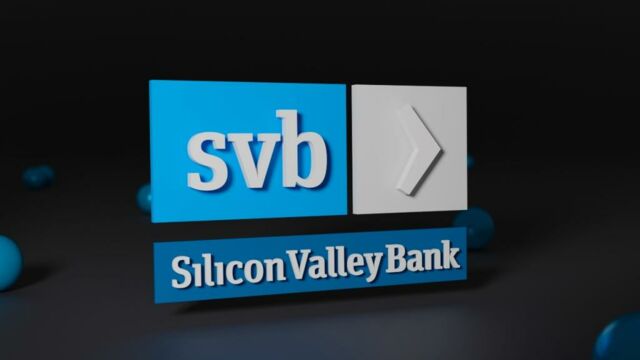The SVB was the go-to bank for tech start-up companies, both in the US and the UK, which made it the 16th-largest bank in the US, although it was relatively unknown to the public. The Silicon Valley Bank, which specialized in funding for tech start-up companies, collapsed on Friday after two days of uncertainty. According to CNN Business, it provided half of the tech start-ups and healthcare companies in the US. They give the following definition of SVB:
Discover our latest podcast
While relatively unknown outside of Silicon Valley, SVB was among the top 20 American commercial banks, with $209 billion in total assets at the end of last year, according to the FDIC.
So what happened to SVB?
The Federal Deposit Insurance Corporation was given total control over the bank’s assets after the collapse, and is using it to pay back customers who still had money invested in the SVB. They have made several statements assuring the public they would get their money back.
The SVB collapse is the second-largest bank failure in American history. It is also the worst financial crisis in the US since the 2008 Wall Street crash. Simply put, the bank suffered from a bank run, as NewsWeek describes:
Bank runs happen when a large number of customers simultaneously ask to withdraw their deposits from a lender over concern it won't be able to pay its long-term debts and financial obligations.
At the time of the collapse, the bank was worth $200 billion.
Read more:This latest scam has cheated thousands of their money, here's what you need to know
HSBC to the rescue in the UK
On Monday 13 March, HSBC, Europe’s largest bank, bought the British branch of the SVB, SVB UK, for a symbolic pound.
The purchase saved thousands of British tech start-ups which had invested in the Silicon Valley Bank. If the HSBC had not bought the SVB, the bank would have been declared insolvent, and customers would have lost a large amount of money.

Read more: Money warning issued over new scams, check if your bank could be affected
What will the consequences be?
While HSBC was able to save British tech start-ups, the issue still remains in the US and could potentially become a global crisis.
Economist Nouriel Roubini, nicknamed ‘Dr. Doom’ after he predicted the 2008 financial crash, told NewsWeek that the collapse of SVB could lead to a ‘global crisis’.
The economist said:
There is at least one financial institution in Europe that has been historically undercapitalized, have had problems of recapitalizing, might have some bad assets, some exposures to long-term securities and unrealized losses
If something were to happen with this institution...that will be much more systemically important—we're speaking about institutions with trillions of dollars of assets, not $400 billion like SVB.
According to Newsweek, on Monday 13 March, several European stocks tumbled including Stoxx 600 by 2.34 percent, Germany's DAX by 3 percent, France's CAC 40 by 2.9 percent and UK's FTSE by 2.6 percent.
Roubini went on to explain that even though European stocks had 'nothing to do' with the collapse in US, it was still affected. He added:
That's the natural lag of the global contagion.
If a bank like SVB can go bust in 1 day ANY exchange or financial scheme in the crypto space can go bust faster. They are like banks- massive maturity mismatch & shoddy assets- & don’t have the liquidity/capital, deposit insurance & LOLR option of real banks. Extinction ahead!
— Nouriel Roubini (@Nouriel) March 11, 2023
However, he confirms that only a small group of midsize banks are currently at risk with the SVB collapse.
Similarly, Moody’s chief economist Mark Zandi said:
The system is as well-capitalized and liquid as it has ever been, the banks that are now in trouble are much too small to be a meaningful threat to the broader system.
.@Markzandi the Chief Economist for Moody's Analytics, says Americans shouldn't be worried about their money after two bank failures pic.twitter.com/gnPgkRA0w0
— The Lead CNN (@TheLeadCNN) March 13, 2023
Meanwhile US President Joe Biden has been trying to assure US citizens that their money is safe and the government have things under control. He said, as quoted by The Guardian,
Thanks to the quick action in my administration over the past few days, Americans can have confidence that the banking system is safe
Your deposits will be there when you need them. Small businesses across the country that deposit accounts at these banks can breathe easier knowing they’ll be able to pay their workers and pay their bills. And their hardworking employees can breathe easier as well.
Read more:Energy bill support payment set to stop this month, here's how it will affect your finances
Sources used:
CNN Business: How does a bank collapse in 48 hours? A timeline of the SVB fall
CNN Business: HSBC buys SVB’s UK business, ending ‘nightmare’ for British tech
NewsWeek: U.S. Bank Collapse Could Spark Global Crisis: 'Dr. Doom' Nouriel Roubini
NewsWeek: What Happened to SVB in Simple Terms















